William James, Where All Consciousness Is Motor

Interview by Richard Marshall

'In a small nutshell, there was a host of vivisection research in his era that sought to understand brain function by examining the results of experimentally induced brain damage (frogs were probably the most common model organism). Some of that research is quite gruesome, and would not pass an ethics board today! But James drew on that research in really ingenious ways, and built up an account of consciousness from there. More precisely, he built both an evolutionary and a physiological account of consciousness on the basis of this brain research.'
'In his psychological work he is a unabashed about portraying consciousness as non-physical, and yet a part of the natural world. His later metaphysics would come to cloud the fundamental distinction between mental and physical, but at least when he was working in a psychological vein, he regarded consciousness as very much non-physical.'
'It’s a bit funny that James is often name dropped as the great grandfather of consciousness science today, and yet what he actually had to say about consciousness has been largely ignored, perhaps because there are some important mismatches with contemporary theory.'
Alexander Klein is a philosopher of the histories of analytic philosophy and of pragmatism, with a special emphasis on naturalistic philosophy of mind in that historical context (i.e., late 19th and early 20th century). William James has been a central focus. Here he discusses William James, his empiricism, objectivity, what he thought the the ontological status of the mind was, neutral monism, intentionality and pragmatism, his theory of perception's importance for his theory of mind, his denial of complex mental states and reflex loops, his denial of the distinction between sensation and perception, why reading his account of consciousness just in terms of him wanting to articulate a phenomenological, first person description is misleading, his evolutionary account of consciousness, why he’s right to think that epiphenomenalism is incompatible with basic evolutionary principles, his account of will, whether he thinks consciousness is a wholly physical process, unconscious mentality, whether his scientific methodology is too a priori, his relation to correspondence theory, and his relevance for contemporary theories of mind.

3:16: What made you become a philosopher?
Alexander Klein: When I got to college, I found it hard to skip quickly through the atomic bomb of reading that other humanities courses dropped on students' heads. One thing that clicked with philosophy, for me, was that here was a class where you were encouraged to read fewer pages, but to read them slowly and carefully. And then you needed to reread. The papers we had to write were shorter (relatively), but they had to be tight—they had to be written and rewritten. I really like this rhythm. I’m slow and plodding like that, I guess.
I’m sure another part of it is a lack of having absorbed much in high school by way of actual facts. History and English and Sociology had a kind of sophistication, where you were expected to come into class already having opinions about, I don’t know, the Second Boer War or common sources of poverty in Elizabethan England. I just was not clued into things like that in high school. In philosophy classes we were expected to read individual texts very closely, and not expected to wax on about how those texts fit with other facts we happened to know from outside of class. That just suited who I was in college.
Ironically, as someone who works primarily on the history of philosophy today, I very much dislike our discipline’s propensity for disconnecting the texts we read from their larger social, political, and intellectual context. But I think if college-aged me took a class with middle-aged me, college-aged me perhaps wouldn’t have majored in philosophy.
3:16: You’re an expert in William James. Was he the original empiricist and what was the problem in psychology that his brand of empiricism was trying to solve?
AK: There are many passages where James presents his own view as a form of “empiricism.” Once upon a time, I made the mistake of asking myself what he meant by this term. I was drawn into this question because his usage is odd compared with how we understand the word today. James sometimes contrasts empiricism with “absolutism” or “intellectualism.” Sometimes empiricism is conceived of as a German tradition, and not something exclusively British. Sometimes the word is used as marking a contrast with “nativism.” That last usage might not seem surprising given the old dispute in the psychology of spatial perception between people like Helmholtz (who called his view “empiristich”) and the nativist Hering. But James goes on to accuse Helmholtz of being only an ersatz empiricist because his view (Helmholtz’s) arguably countenances synthetic a priori knowledge of spatial relations. And in any case, even though he adopts the “empiricist” label in the psychology of spatial perception, James largely sided with Hering in this controversy.
So what did James mean when he called himself an “empiricist?” Did he think of his own empiricism as part of a longer tradition? If so, who were the canonical figures in that tradition supposed to be, and what thesis or stance was supposed to unite those figures? It doesn’t seem that the answer is Locke, Berkeley, and Hume, and it doesn’t seem that what is supposed to unite empiricists is the thesis that only experience can justify legitimate knowledge claims.
It’s well known that term “empiricism” was once a pejorative term, with roots in the history of medicine. An “empiric” was essentially a quack—a medicine man who grounded his healing in pure, untutored experience, with little theoretical understanding. And there has been quite a bit of scholarship by early modernists showing that the term was not a philosophical term of art (at least not one with a stable meaning) in the 17th and 18th century. Indeed, even T. H. Green, in his 1874 introduction to Hume’s *Treatise,* doesn’t use the label “empiricists” when he groups Locke, Berkeley, and Hume into one tradition. (Green does use the word a few times in connection with Locke, but he seems essentially to be leveling a diss, not coining a label to describe a philosophical school.)
What this has to do with James is that he is one of the earliest, influential figures I can find who actually applies the label of “empiricist” to *himself,* in philosophy. He’s not the first. G. H. Lewes adopted this label as the name of what he called his “creed” in 1874, in a work James reviewed. Still, from what I can tell, James is at least part of the first generation of English-speaking philosophers to adopt the “empiricism” label. That’s interesting, especially since he was American, not British.
So what did he mean by the word? Well, in the 1870s and 80s, when James and some of his allies started batting around the term, it seems that the key issue isn’t so much the role of experience in meaning or justification; it’s the relationship between empirical psychology (or science more generally) and philosophy. “Empiricists” like Lewes, James, and Alexander Bain contended that philosophical accounts of the mind should in some way heed the results of empirical work from physiology or empirical psychology. And they defended psychology as a legitimate science from some of its philosophical critics (Green is a great example here, too—he denigrated the idea that psychology could be a natural science).
So this is a very long answer, but it’s a complicated question! I think when James called himself an “empiricist,” he meant that he stood up for the prospect that psychology could be a genuine natural science, in contrast to critics, many of whom were Kantians or Hegelian “absolutists.” And James meant that philosophy should pay attention to the results this young science was producing.
3:16: Why do you think James is actually doing more “justice to the objective dimension of human inquiry” than fellow pragmatist Peirce, contrary to Cheryl Misak’s recent claims?
AK: If one thinks of truth in terms of a property that is completely independent of human interest (such as correspondence), it is easy to see how such a property could be objective. It is harder to see why such a property would be either useful or accessible to humans. Pragmatists have generally tried to define truth in terms of human inquiry, so that truth is by definition something like the consensus towards which informed inquiry converges. The view makes it much easier to see why true ideas would be both useful and accessible to us. But the harder challenge, for pragmatists, is to account for the objectivity of truth.
Peirce essentially tries to do this by putting a strict fence around what kind of inquiry is admissible, and Misak praises him for that. For Peirce it’s *scientific* inquiry, conducted according to some acceptable set of rules, that produces truth. An under-appreciated difference between James and Peirce here comes down to the role of technical language in inquiry. Peirce is very explicit on the need to coin terms of art, and to keep to technical definitions. That’s one way to protect the integrity of inquiry. But if we insist on conducting inquiry using jargon, that is language that can only be adopted in a limited and professionally-trained community. And any small group, whether professionally trained or not, is more likely to share various biases. So I think Peirce’s insistence on the use of jargon risks introducing small-group bias into inquiry, which would undermine objectivity.
James also thinks inquiry needs to be conducted in a scientific fashion, but especially in philosophical inquiry, he doesn’t think this should be done using jargon, in a technical fashion. James’s outlook here is evolutionary—he suggests that if natural selection operates on physical traits in populations of organisms, then a kind of selection may operate on ideas in an ecology of discourse. In the short-run, the ideas that proliferate may well be inferior in a host of ways to the ideas technical science produces. But on James’s view, what counts in the long run (again, thinking especially of philosophy here) is the ideas that are adopted and passed along by *everyone,* not just by trained professionals. What makes those ideas true, for James, is that the ideas are in some sense adopted and carried forward by the entire community. And the entire community can’t engage with ideas that can only be expressed in jargon.
So the case for James’s account being the more promising pragmatist option when it comes to objectivity (at least in philosophy) rests on the relative size of the community of inquiry. On James's model, what’s true is what sticks in the long run, from generation to generation, among all humans, not just the cognoscenti. It’s obviously debatable whether biases and distortions are more likely to be canceled out in larger communities, but that’s the (in my view not implausible) assumption on which Jamesean objectivity hinges.
3:16: What was the ontological status of the mind for James? Is he what Russell called a ‘neutral monist’? And why don’t you think we should understand it in terms of an American Realist response to the problem of the external world at the turn of the last century?
AK: In his more psychological work, James’s official position is interactionist dualism. He hypothesized that consciousness is an adaptation (in the Darwinian sense) for behavior-regulation, and he supported his hypothesis with a host of then-recent experimental and physiological research. But as James turned to more philosophical concerns in his older years, he developed a metaphysical account according to which the universe isn’t fundamentally divided up into minds and bodies. It is supposed to be composed of one basic kind of stuff—a stuff he calls “pure experience.” The idea is that minds and bodies are different kinds of arrangements of this basic stuff.
What motivated James to develop this view wasn’t the problem of the external world though, as it’s traditionally conceived. His psychology had been criticized for failing to give a naturalistically acceptable account of intentionality. And when he (James) really began developing his neutral monist metaphysics in the late 1890s, it was in response to this kind of criticism. His answer was to distinguish distal representation—where my idea refers to an object outside of my immediate experience--from proximate representation--where my idea refers to some object that is directly present to me. In the distal case, he starts to offer an early version of pragmatism about reference. Ideas refer in virtue of guiding me up to an object, through an intervening environment. So, if I’m standing in Central Square in Cambridge, my idea of Memorial Hall refers to that building in virtue of providing me with a good tool for actually finding my way to the building. But what should he say about the case of proximate reference? When I’m standing right in front of Memorial Hall, what makes my experience an experience *of* that building? His answer is neutral monism—he says that reference in the proximate case amounts to my mental state and the intentional object (Memorial Hall) being numerically one “thing”—one and the same bit of "pure experience,” which is his name for the neutral stuff out of which everything is built.
In short, James's primary motivation for developing his own neutral monism was to help make naturalistic sense of intentionality. Insofar as Russell’s concern was the problem of the external world, his theoretical motivation was quite different.

3:16: What was his his theory of intentionality? What makes it particularly pragmatist?
AK: Well, this is where James’s neutral monism (or as he called it, his “radical empiricism”) meets his pragmatism. You can see from my last answer that the model case of intentionality is a case where some mental state functions as a tool to put the organism into direct, practical contact with something in the environment. Insofar as one thinks of pragmatism as characterized by a tendency to theorize philosophically thorny concepts (like intentionality) by appeal to bodily action, James’s theory of distal representation does seem very pragmatist.
Incidentally, this kind of view can be regarded as connected with figures we now think of as classically empiricist as well. Berkeley, in *Essay Towards a New Theory of Vision,* proposes that we have a sense of vision precisely so we can get a grip on what *bodily* experiences we can expect from things in our environment. What it is to see the knife as sharp is to form an expectation of what would happen if one were to handle the thing. It’s the bodily sensations we ultimately care about, for Berkeley and for James.
3:16: His theory of perception was a response to arguments that were designed to show that there couldn’t be a science of the mind wasn’t it? How did his rejection of Humean psychological atoms help to show that empirical scientific methods could be used to study the mind?
AK: Some of those criticisms of psychology as a science that I mentioned earlier—from people like T. H. Green—really exploited the atomistic way much empirical psychology conceived of the raw products of our sensory apparatus. So, the visual field was often conceived of as, at some level, a field of pixel-like colored points. These are what Berkeley and Hume called “minima sensibilia.” Green had argued that in order for our experiences to be coherent and meaningful, there must be some mental structure—some transcendental ego, in essence—that knits together all these disparate sensory atoms into one meaningful experience. For familiar Kantian reasons, that ego is supposed to be necessarily outside of time and space, and so not the sort of thing we can study scientifically (i.e. through observation).
So James tried to deny that sensation comes to us chopped-up into little bits that need to be actively knit together. Instead, he conceived of sensation as continuous and natively structured, which is supposed to obviate the theoretical need for some non-natural mind to make possible our experiences in time and space. And since this sort of picture blocks the prospect for there being unobservable transcendental egos, it is also supposed to clear the way for a genuine science of mind that can rely on the usual, observation-based techniques of science.
3:16: So did he think there are no complex mental states built out of simple impressions or ideas? Late on he denied that consciousness exists at all – can this be squared with his earlier empirical psychology? Does it hinge on his attitude towards this ‘elementarism’ and his notion of what he called a reflex ‘loop’?
AK: That’s right—James denied the existence of complex mental states, at least in the sense of states that are composed of simple, self-standing mental elements. Think of salvaging the bricks from a farmer’s wall that’s been knocked down, and then used to build something new, like a brick house. People like Berkeley and Hume treat complex mental states as built out of so-called minima sensibilia (minimum points of sensation, like little colored points in the visual field, or little pinpricks on the skin). James was against this way of thinking of mental states. When I see a red curtain, there’s no part of that red-curtain-experience that can somehow recur in a later experience of, say, a red cloak. He defends a kind of phenomenological holism according to which your experience at any given moment is the *whole* of your experience. To the extent that we “pick out” some one part of that experience (as when I focus on the way the table in front of me looks, and ignore the noise my kids are making in the background), we’re typically using attention (or perhaps concepts) to emphasize one aspect. But we are not picking out some kind of mental atom nestled in my visual field—there are no such things, he thinks.
In his later, more metaphysical work, what James would deny is that consciousness is a distinctive entity. His criticism of consciousness as an entity is not very far from his own earlier criticisms of elementary mental atoms. Just as we are unable mentally to distinguish part and whole in the way James thinks elementarists need to, so we are unable to distinguish consciousness from representational content—there’s no container/contained distinction to be drawn in an occurrent mental state, either. So if we’re thinking of consciousness as a component of a complex mental state—that view needs to go, according to James. His mature view is that consciousness is a “function,” not an entity, and the function we call consciousness is simply intentionality. In other words, mental states *represent* things, and consciousness simply amounts to representation.
Some readers might say that James sounds like he’s anticipating representationalism about consciousness today, and there’s some truth to that. But the catch is that what it is for a state to represent something else is for the state to help initiate or guide the right kind of action. So if he’s a representationalist, he’s got (speaking loosely) quite an enactive or embodied account of what representation amounts to.
3:16: Contemporaries working in studies of perception still think there’s something to the distinction between sensations supposedly given by the senses alone and full-blown perceptions that are the product of cognitive enrichment but James rejected it didn’t he? Can you sketch for us what his approach was and whether you think it should be heeded today?
AK: Right, so here's a way to think about his denial of the distinction between sensation and perception, as that distinction is conventionally drawn. Ask yourself what the relationship in an occurrent mental state is supposed to be between these two supposed elements. Take as an example my visual experience of a round table top when I am sitting at the table. The table top projects a two-dimensional oval onto my retina, something like what you would put down on paper if you were trying to render the table in a perspective drawing. The claim that is of interest is not just that there are raw physical sensations that the brain must process in order to produce an experience of the round tabletop in three dimensions. That much James very much accepts. The question is whether there is some sense in which the raw visual sensation… in this example, the flat oval image … is a part of my three-dimensional table experience or not. The trouble with saying that it is part of my 3-d experience is that then you have to say that I am having an experience of the table top as both round and oval at the same time. But then you are admitting that contradictory descriptions of a single mental state can both true. And James thinks that if we allow this, then it will destroy any prospect for psychology to be scientific, or even to be a rational enterprise. Ex falso quodlibet!
I do think that mainstream cognitive science today is far too willing to adopt hypotheses concerning all manner of mental machinery that is supposed to be doing work transforming raw sensation into full blown perception. James's position seems to me much more sensible—that whatever “machinery" produces perceptual experience is *physical,* not living in some kind of mysterious limbo space between conscious experience and the brain. James thought that rather than trying to isolate raw elementary building blocks of experience, which he thought were a fiction, that psychologists should be figuring out how to correlate dynamic brain states with whole mental states in all their occurrent richness.
I don’t think he would be against modularity if that thesis is applied to the brain. But the idea that we have *mental* modules doing work "under the hood" of experience, so to speak, I think he would find anathema.

3:16: Why do you argue that reading his account of consciousness just in terms of him wanting to articulate a phenomenological, first person description is misleading? Is it because he denied that those qualitative aspects are independent (as a natural matter) of accompanying physiology, or other things?
AW: That’s one reason. He has an evolutionary account of mind according to which consciousness is an adaptation for behavior regulation. Consciousness is there to initiate and guide behavior, on his account, and it performs this function largely by enabling agents to evaluate different consequences in different potential courses of action. So today’s distinction between pure phenomenology—pure what-it-is-likeness—and so-called information consciousness is going to be invidious, for him.
Another issue is that I think philosophers, when they have tried to dip into James's psychological work, have tended to pull out the wonderful phenomenological description, but set aside much of the material about brain and nerve physiology. But in fact James’s account of consciousness is built on a host of experimental evidence, especially evidence coming out of the enormous vivisection and brain localization literature of his day. James himself did not make many novel contributions to the physiological literature, to be sure. But he was ingenious at synthesizing the latest experimental results and putting them to work to support his own very novel and interesting program in psychology. So that’s the other problem with treating James as somebody who just wants to give us pure phenomenological description. That attitude rips one part of his program out of its proper context, papering over much of the empirical evidence James thought he had for his various psychological theses, and also rendering opaque his evolutionary project, which very much requires seeing the mind as embedded in a body that is embedded in a natural environment.
3:16: So can you sketch for us his evolutionary account of consciousness – and what role did decapitated frogs have in stimulating his ideas?
AW: I have a book coming out on James’s account of consciousness, a topic that has been surprisingly neglected. My book looks specifically at a research tradition in experimental physiology out of which his understanding of consciousness grows. In a small nutshell, there was a host of vivisection research in his era that sought to understand brain function by examining the results of experimentally induced brain damage (frogs were probably the most common model organism). Some of that research is quite gruesome, and would not pass an ethics board today! But James drew on that research in really ingenious ways, and built up an account of consciousness from there. More precisely, he built both an evolutionary and a physiological account of consciousness on the basis of this brain research. The evolutionary account basically portrays consciousness as an adaptive psychological trait (he thinks it's an adaptation for behavior regulation). And what I call his physiological account is a highly detailed story about how consciousness actually accomplishes its purported etiological function (behavior regulation)—how it hooks up with the so-called reflex arc to produce regulated behavior. The short version of the physiological story is that it is in virtue of enabling *evaluation* that consciousness accomplishes its etioloigcal function.
James might be understood as a forerunner of two very popular approaches today that are typically seen as rivals--representationalism and enactivism. As far as enactivism goes, Dewey and Gibson have both been more widely cited in this connection, but Dewey and Gibson both trace an intellectual lineage back to James. So no surprise that James would have influenced that line of thinking. But I’m skeptical about just seeing James as a forerunner of enactivism, for several reasons. One is that the way consciousness is supposed to regulate behavior—by enabling evaluation—inherently involves representations, as I’ve said above. In fact, he is very clear in emphasizing something like the decouplability of conscious states, a concept popular among today’s representationalists. Nevertheless, it’s true that James bears some affinities with enactivism when you consider the evolutionary account—from that perspective, consciousness cannot be understood without appeal to its role in regulating behavior. In other words, his position can be understood as a kind of middle-ground between today’s representationalism and today’s enactivism, on my reading.
3:16: Do you think he’s right to think that epiphenomenalism is incompatible with basic evolutionary principles?
AW: Yes! I think his argument is devastating, and under appreciated. He had a classic argument against epiphonemenalism that said that if consciousness makes no causal impact, then we cannot give an evolutionary explanation of why things that benefit our bodies typically feel good, and why things that harm our bodies typically feel bad. This is because if consciousness makes no causal impact, than it cannot differentially affect reproductive success. That part of the argument everyone seems to accept.
The standard epiphenomenalist response today is to say that conscious could still have evolved not through selection but through some random process that produces traits we now call by-products. If that’s right, we would say that consciousness isn’t an “adaptation,” but rather an evolutionary “byproduct." A classic example of a byproduct is the nipple in male mammals. Females of course need nipples to deliver milk to offspring. But there is no direct adaptive value in males having this trait. Males have nipples because the developmental process evolution hit upon for giving females this trait happens to have nipples forming in embryos before morphological sexual differentiation is much underway. In other words, the male nipple is a byproduct, not an adaptation, and today’s epiphenomenalists have suggested that conscious might also be a byproduct, like the male nipple.
What people haven’t appreciated about James’s argument is that he was not someone who simply assumed that every trait we find must be an adaptation—he wasn’t what we would today call an "adaptationist." In fact he was already working with some rough and ready criteria in psychology for how we should distinguish genuine adaptations from mere byproducts. He suggested two criteria that biologists today very much would still accept—complexity and precision of function. So James’s argument isn’t just that consciousness would be invisible to selection if epiphenomenalism were true, but also that consciousness is profoundly unlikely to be a byproduct given the functional complexity and precision with which it is connected with bodily states—even with *prior* bodily states that epiphenomenalists agree are the causal source of conscious states. I think that’s a good argument!

3:16: How important is his work on the physiology of the will and his extended attack on the old German idea that will is to be connected with what was then called an *Innervationsgefühl*, or feeling of neural innervation?*
AW: Well first of all, I don’t think you can fully grasp James's evolutionary account of consciousness without paying some attention to his account of will. Consciousness enables evaluation by providing a sphere in which different courses of action can be entertained at once, and evaluated. But it is will that enables us to pick one of those possibilities and act. So on his account, consciousness could not have evolved without will, perhaps even free will.
As far as the *Innervationsgefühl* goes, his account of will is fundamentally at odds with that older way of seeing things. The *Innervationsgefühl* tradition basically says that my experience of willing comes from my experience of my brain sending neural impulses out to my muscles, triggering contraction. That outflowing nerve current is the “innervation” that we are supposed to have some distinctive feeling of innervation—essentially a feeling of effort or trying. This older view isn’t so unlike so-called trying theorists today in the philosophy of action, who think that willing is a matter of taking an otherwise causally inert idea and translating it into action.
On James’s view, in contrast, every idea naturally tends to bring about some bodily action. For him, the question isn’t how or why we do act on some ideas, but why we don’t act on all of them. His answer is that consciousness gives us a capacity to entertain rival ideas, and rival ideas will tend to neutralize each other in the realm of action. So, I may have the idea to get out of bed so that I won’t be late for work, but I may also have the rival idea of how wonderful my warm blanket feels at the same time. For James, to will isn't to *try* to perform that action… It’s not to take an otherwise inert idea and add a special magic something to it to translate the idea into bodily motion. For James, the paradigm case of willing, what he calls intentional action, is the case where I actively suppress one rival idea to allow the other rival idea to spring into action. That’s a very different picture than one gets from a trying theory.
3:16: If ‘all consciousness is motor’ is consciousness a wholly physical process for James?
AW: That slogan is the title of my book manuscript! But no, he doesn’t mean that consciousness is a wholly physical process. Perhaps he should rethink his slogan! No, but seriously… What he has in mind is that consciousness's *evolutionary function* is motor. He thinks its evolutionary function is to regulate behavior, where by “regulate” I mean primarily hatching goals, and choosing actions that will tend towards those goals.
In his psychological work he is a unabashed about portraying consciousness as non-physical, and yet a part of the natural world. His later metaphysics would come to cloud the fundamental distinction between mental and physical, but at least when he was working in a psychological vein, he regarded consciousness as very much non-physical.
3:16: He was interested in what he called “subliminal” states. Many commentators have explicitly treated this as an endorsement of unconscious mentality. But you’ve pointed out that James often says he thinks that the esse of mental states is sentiri—to be sensed. Can the two views be reconciled?
AW: I think it is deeply wrong to imagine James as somebody who allowed unconscious mentality. He very explicitly denied unconscious mentality, and asserted that the essence of mental states is consciousness, during virtually all phases of his career—early, middle, and late. He has some extended discussions of so-called "subliminal states," especially in the *Varieties of Religious Experience.* And many people have interpreted that as a nod to unconscious mentality, but it really is not. Subliminal states for James are not mental states. Even in the *Varieties,* when he gives a gloss on what he means by this phrase “subliminal," his discussion suggests that he has in mind subliminal states that are physiological, not unconscious and yet mental.
This is not to say that the denial of unconscious mentality is an easy position to maintain. People like James and Descartes who insist that all mentality is conscious must be able to give an account of things like standing beliefs, and well practiced actions that seem to be guided and intelligence but are not consciously performed. And James does have accounts of these kinds of phenomena, but those accounts do not rely on, and in fact explicitly eschew, unconscious mentality.
And did he think scientific and religious beliefs are governed by the same epistemic standards?
James is often erroneously thought to have endorsed Galileo’s view—that different epistemic standards or principles are suitable in religion and in science, respectively. But in fact one of his most fundamental and enduring interests is in the question of whether religious faith is epistemically permissible for people who accept a basically scientific world view. In other words, the basic challenge for him is exactly to show that religion *is* epistemically compatible with a scientific worldview. He’s not interested in the old fashioned rational theology that tries to demonstrate that we are rationally forced to believe in God. For James, “defending” religion means showing that someone committed to the basic epistemic principles at play in science are also permitted (but not required) to believe in God.
3:16: Do you think people were right to criticize his scientific methodology in ‘Principles of Psychology’ for presupposing a priori principles? The criticism seems a bit ironic given that early positivists thought him too psychologistic to be able handle the a priori, didn’t they?
AW: Well, that’s a good question. Probably the most important critic of James on a priori principles in science was his friend C. S. Peirce, not any of the positivists. What’s at issue for Peirce was James’s insistence (at the start of the *Principles of Psychology*) that he can just “presuppose” that minds exist in a material world populated by things that they *know.* He doesn’t try to prove any of this, insisting that any science must start with some basic assumptions, and these are his.
Peirce thought that if you propose that this or that a priori principle is necessary for doing science, that you are essentially refusing to subject that principle to criticism, which is a fair complaint I think. You might think James would respond with some careful account of the role such principles rightly play in science, but he doesn’t. Still, he certainly isn't alone in supposing that one must adopt some kind of principles in science in order to get empirical inquiry off the ground. That’s not far from the position of many logical positivists, like Reichenbach.
As far as whether James is too psychologistic to be able to *account* for the a priori, I think that criticism is misleading. I do think it’s fair to say that his most detailed account of a priori reasoning comes from the standpoint of psychology—so certainly he was interested in giving a psychological account of what happens when we use a priori principles. But merely giving a psychological account of scientific reasoning does not by itself make somebody psychologistic. Psychologism involves advocating that the rules of reasoning are just descriptive generalizations for how we do in fact reason. I don’t see that James is committed to a view like that—certainly such a view doesn’t follow from merely giving a psychological, even phenomenological analysis of how this or that aspect of reasoning works in experience.
Nevertheless, he doesn’t give a theory of the role a priori principles rightly play in science in quite the way logical positivists would later be interested, so ultimately I think he just doesn’t speak to their concerns.
3:16: So why did he why did he become convinced that any self-respecting empiricism had to abandon a correspondence-theory of knowledge?
AW: Well, first I think we have to be clear what James is denying here. In some sense he is a correspondence theorist because he accepts that knowledge involves the right kind of relationship obtaining between a mental state in the world. I think it’s perfectly OK to call that relationship correspondence. What he rejects is a copy theory, according to which correspondence amounts to having an image in the mind that matches things in the world part for part.
This is for reasons that should make sense in light of things we have already discussed. If mental states are inviolable wholes, then knowledge cannot require a literal, part to part correspondence between any supposed elements of my mental state and things in the world. For instance,If I have a representation of a pile of marbles in mind, that representation cannot constitute knowledge in virtue of there being some independent parts of my mental image that correspond to the real marbles. My mental state has no parts! So that’s one reason I think he was forced to abandon a traditional copy theory.
3:16: As a take home could you say something about James and contemporary theories of mind and where you feel he is influential and where his ideas should be heeded more than they have been so far? Reading your work on him makes him seem pretty up to date in terms of what he claimed and methodology – do you think he’s still relevant?
AW: I would highlight three areas of relevance today. One is his evolutionary emphasis in the study of consciousness. It’s a bit funny that James is often name dropped as the great grandfather of consciousness science today, and yet what he actually had to say about consciousness has been largely ignored, perhaps because there are some important mismatches with contemporary theory. But if we are naturalists, then an important job for a theory of consciousness is to explain how this mysterious trait evolved. And his tendency to look to animal research, particularly physiological research, to help address this question strikes me as a very healthy theoretical orientation.
Second, I do think that his metaphysical account of the relationship between mind and body is relevant to some metaphysical discussions today. In particular, there has been so much interest recently in neutral monism, often under the label Russellian monism. Russell is a great resource on this, but so is Russell's chief inspiration for this view, William James.
Last, I think James provides us with a very interesting model for how one can bring philosophy to bear on practical problems. His interest in the permissibility of faith for persons with a scientific outlook stemmed from his concern with a rash of suicides among educated Victorians. Another concern he writes vividly about is poverty, and in some very deep respects his work developing pragmatism was very much aimed at providing tools that can help combat both problems at once. That may seem surprising, but I think this is very much an accurate description of where James was coming from. I don’t think there are so many epistemologists today who would think that the criterion for success for their theories of knowledge is whether or not those theories can help provide tools for combating poverty or other real world social ills. But I think that kind of attitude is compelling and interesting, and stands as a constant reminder that we should always keep in view the question of what purpose our philosophical theories serve.
3:16: And for the readers at 3:16, are there 5 books you can recommend that will take us further into your philosophical world?
AW: I can’t recommend my own forthcoming monograph yet, which spells out some of these ideas about James and consciousness, because it’s not out yet! But here are some others that have shaped the way I think about the history of philosophy and science:
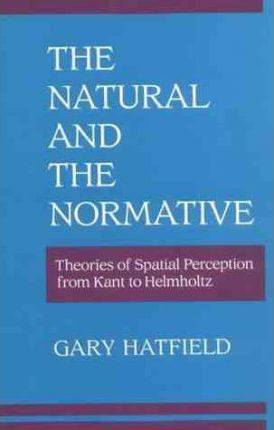
Gary Hatfield, *The Natural and the Normative*
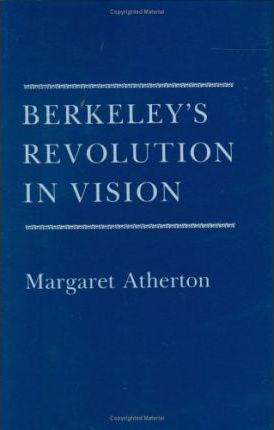
Margaret Atherton, *Berkeley’s Revolution in Vision*
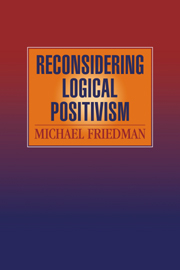
Michael Friedman, *Reconsidering Logical Positivism*
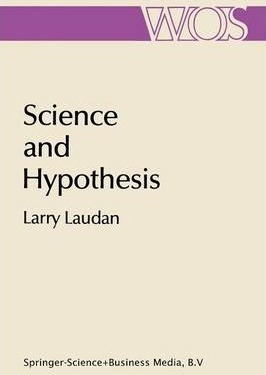
Larry Laudan, *Science and Hypothesis*
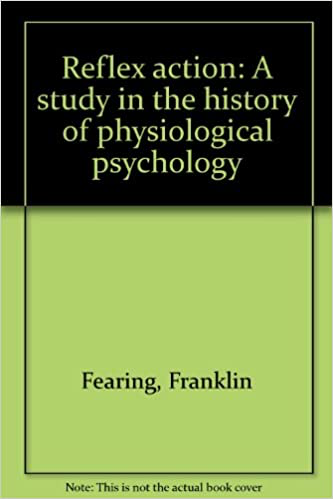
Franklin Fearing, *Reflex Action*

ABOUT THE INTERVIEWER
Richard Marshall is biding his time.
Buy his second book here or his first book here to keep him biding!
End Time series: the themes
Huw Price's Flickering Shadows series.
Steven DeLay's Finding meaning series
NEW: Joseph Mitterer's The Beyond of Philosophy serialised